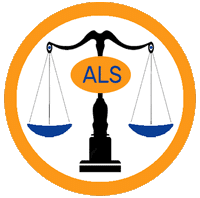Need professional help with your PIP or ESA Claim?
We will assist you with your application and help you understand the process with zero jargon.

The fixed fee we quote is the fee you pay. There will be no nasty surprises.
Let’s break it down
PIP stands for Personal Independence Payment. It is a UK welfare benefit that helps with the extra costs associated with long-term ill health, disability, or chronic illness for individuals aged 16 to State Pension age. PIP is designed to assist with daily living and mobility needs and is not based on income or savings. It replaces the Disability Living Allowance (DLA) for new claimants and is assessed through a points-based system to determine eligibility and payment amounts.
How do you apply for PIP?
- Initial Inquiry: You can start by checking if you’re eligible for PIP and gathering necessary information about the benefit.
- Making a Claim: You need to fill out a PIP claim form. This can usually be done online or by requesting a paper form from the Department for Work and Pensions (DWP).
- Medical Assessment: After submitting your claim, you’ll be invited to attend a face-to-face assessment with a healthcare professional. This assessment helps determine the level of support you may need.
- Decision: The DWP will review your claim along with the assessment report. They will then make a decision regarding your eligibility and the level of PIP you will receive.
- Award Notification: You will receive a decision letter informing you of whether you’ve been awarded PIP, the amount you will receive, and the duration of the award.
The DWP will backdate your payments to the date you originally submitted your claim. This ensures that you receive the full amount owed from the start of your entitlement period. - Appeal (if necessary): If you disagree with the decision, you have the right to challenge it through a mandatory reconsideration and, if needed, an appeal to an independent tribunal.
FAQS
Am I eligible for PIP?
Eligibility for PIP depends on how your condition affects you, not the condition itself. You must have had difficulties with daily living or getting around for at least 3 months and expect these difficulties to continue for at least 9 months. There’s also an age and residence requirement.
What happens after I apply for PIP?
After you apply, you’ll likely be invited to attend a face-to-face assessment with a healthcare professional to assess how your condition affects your daily life. The DWP will then review your application and assessment before making a decision.
How long does it take to get a decision on PIP?
The decision on your PIP claim can take several weeks to months. It depends on factors such as the complexity of your case and the availability of assessment appointments. You’ll receive a decision letter outlining whether you’ve been awarded PIP and at what rate
How much PIP will I get?
The amount of PIP you receive depends on how your condition affects you, not the condition itself. PIP is divided into two components: the daily living component and the mobility component. Each component has a standard rate and an enhanced rate, depending on the level of support you need.
Can I appeal a decision on PIP?
Yes, if you disagree with the decision on your PIP claim, you can ask for a mandatory reconsideration where the DWP will review your case again. If you’re still dissatisfied, you can appeal to an independent tribunal.
Can I get PIP if I’m working?
Yes, you can receive PIP whether you’re working or not, as it’s not means-tested. However, the amount you receive may be affected by your income level and other benefits you receive.
Can I get PIP if I already receive other benefits?
Yes, you can receive PIP in addition to other benefits like Employment and Support Allowance (ESA), Universal Credit, or Attendance Allowance. PIP is separate from these benefits and focuses on the extra costs of living with a disability or long-term health condition.
How often do I need to renew my PIP?
PIP awards are usually given for a fixed period, ranging from a few months to several years, depending on the nature and severity of your condition. You will be notified when your award is due for review, and you may need to undergo a reassessment process.
What information do I need when calling the DWP?
When you call the DWP to start your PIP claim, have the following information ready:
- Details of any periods abroad exceeding 4 weeks in the last 3 years
- Your full name
- Full address
- Phone number
- National Insurance number
- Bank or Building Society account details
- Contact details of your GP or other health professionals you consult
- Dates and details of any hospital or residential care stay
- Nationality or immigration status
